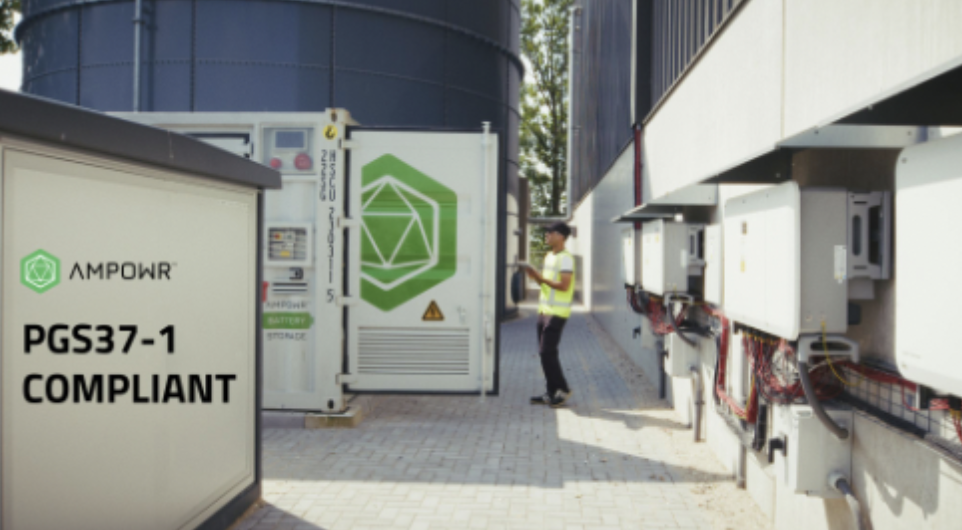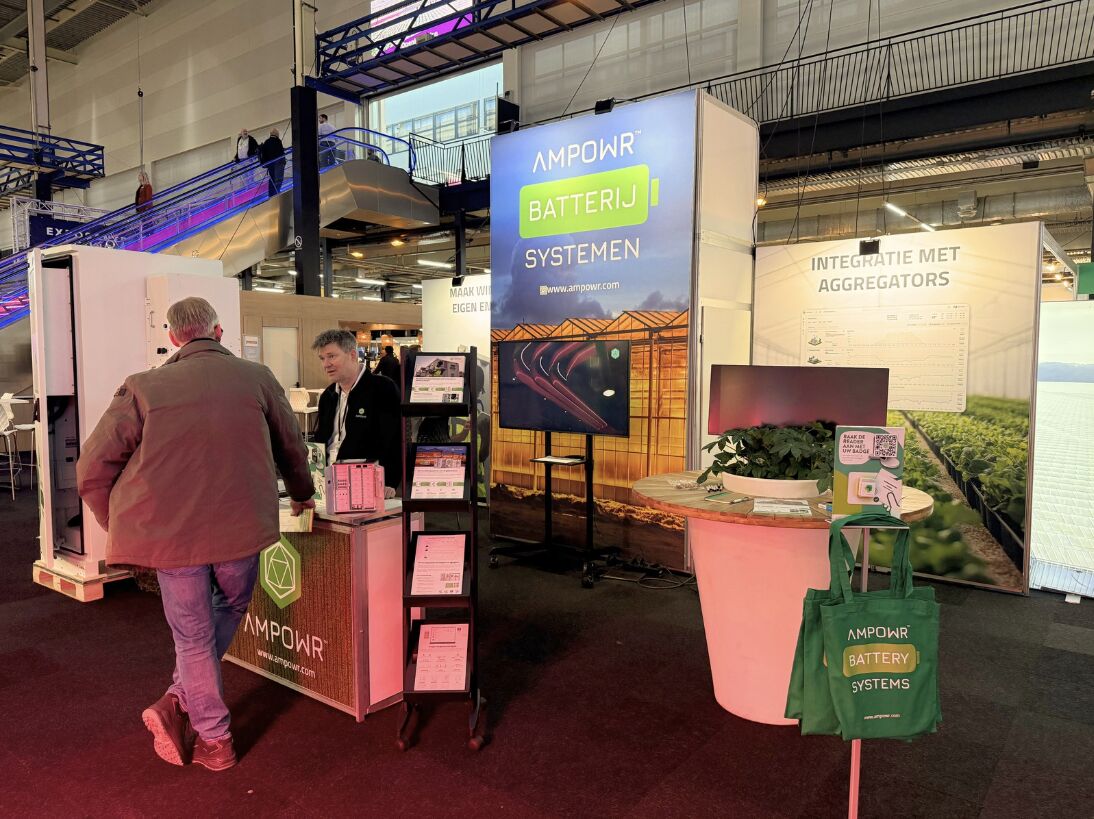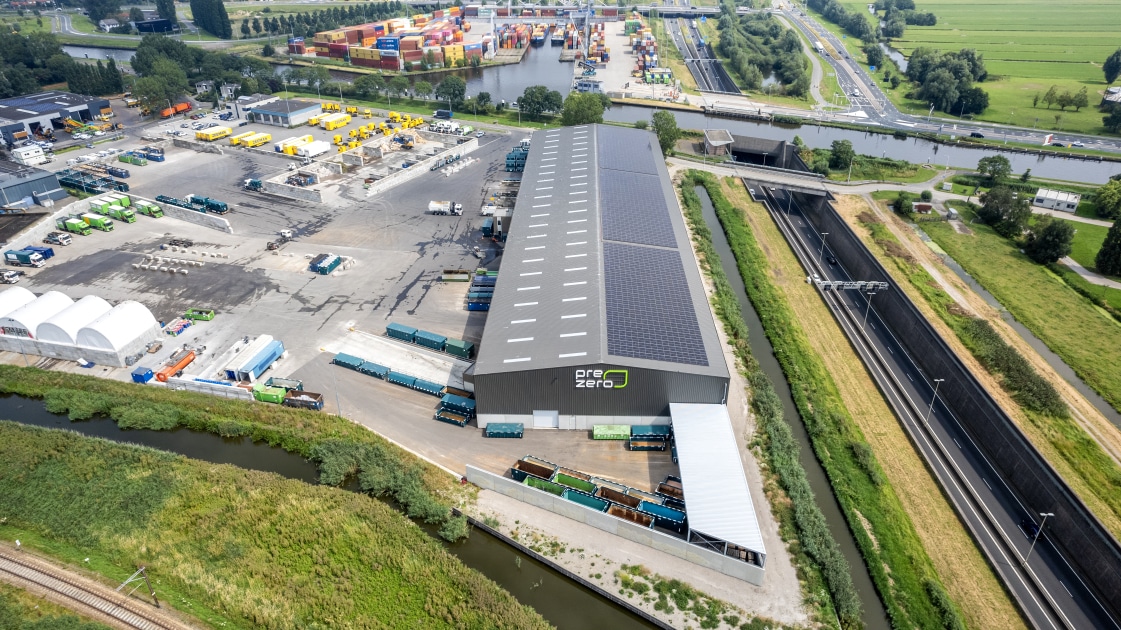Energy storage systems are a game-changer for homes and businesses looking to stay powered up, but keeping these systems safe is just as important as the power they provide. If you’re considering investing in one, understanding safety standards like those outlined in the PGS37-1 guidelines, can give you peace of mind, knowing your system is both safe and compliant. PGS37-1 is a set of guidelines designed to ensure the safe storage and operation of energy systems, especially those that use lithium-ion batteries.

Background PGS37-1
The PGS37-1 guidelines aim to make lithium-ion battery storage safer, especially for larger energy storage systems. Developed in the Netherlands, these rules respond to the fire risks of lithium batteries by setting standards to prevent fires and protect surrounding areas. The PGS37.1 standard primarily applies to companies, as it is generally intended for systems with capacities above 20 kWh. For now, companies should keep an eye out for updates on these regulations.
Let’s break down the key areas covered by PGS37-1 to help you understand how these systems are kept safe, efficient, and environmentally friendly.
1. Fire Safety Measures
Fire safety is one of the biggest considerations for energy storage systems. PGS37-1 lays out steps for preventing and managing fires, including fire-resistant barriers, proper ventilation, and enough space between units to reduce the risk of fire spreading. In addition, adding automatic fire suppression systems and regularly scheduled fire drills can help keep everything under control in case something does go wrong. The goal is to protect your system, your property, and, most importantly, the people around it. Ampowr Systems are certified to UL9540(A) and IEC62619 standards, ensuring compliance with industry safety and performance requirements.
2. Installation and Design Requirements
Getting your system installed the right way makes a huge difference. PGS37-1 offers guidance on how these systems should be designed and installed, covering everything from where they should be located to which materials should be used. When systems are installed thoughtfully, they’re easier to maintain, perform better, and are less likely to have issues down the road. Making sure your energy system is set up to standard means you’ll have a reliable power source that’s built to last. Ampowr is ISO 9001 certified, allowing us to carry out commissioning in compliance with the highest quality management standards.
3. Handling Hazardous Materials
Lithium-ion batteries, commonly used in energy storage systems, contain hazardous materials that require careful management. PGS37-1 provides rules for safely storing, handling, and disposing of these materials. This includes having spill containment and regular inspections to ensure everything is safe. Training employees on how to manage these materials safely is also a key part of keeping the entire system secure.
4. Monitoring and Maintenance
Regular check-ups keep your energy system working smoothly and help you catch any small issues before they turn into big problems. PGS37-1 suggests ongoing monitoring to keep tabs on temperature, voltage, and other important factors, all of which help keep the system running safely and efficiently. Maintenance also means updating any software and replacing parts as needed, which helps extend the life of your system. Ampowr Cosmos monitors 3,000 datapoints to ensure optimal performance and reliability, keeping the battery systems running efficiently at all times.
5. Emergency Procedures
In case of an emergency, having a clear plan can make a huge difference. PGS37-1 emphasizes the importance of setting up an emergency response plan, including clear evacuation routes and up-to-date contact numbers. Regular training ensures that everyone who interacts with the system knows what to do if something unexpected happens. Whether it’s a fire or a leak, these plans make it easier to respond quickly and keep everyone safe.
6. End-of-Life and Recycling
When your energy system reaches the end of its life, it’s important to dispose of it responsibly. PGS37-1 encourages recycling lithium-ion batteries and safely disposing of any remaining materials. Many companies work with certified recycling facilities to ensure everything is handled in an environmentally responsible way, helping reduce waste and minimize the system’s overall impact on the planet.
Why PGS37-1 matters
For anyone using energy storage systems, following PGS37-1 standards isn’t just about meeting regulations—it’s about prioritizing safety, reliability, and sustainability. By sticking to these guidelines, you’re choosing a system that’s designed to perform well, reduce risk, and make a smaller environmental footprint.
If you’re looking for an energy storage solution that’s PGS37-1-compliant, we’re here to help. At Ampowr, we can guide you through everything from installation to maintenance, ensuring your system is set up for safe, reliable performance from day one.



